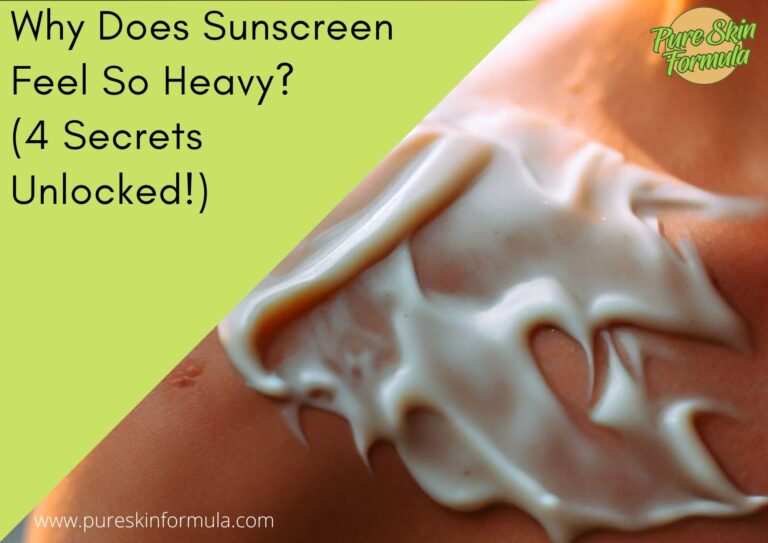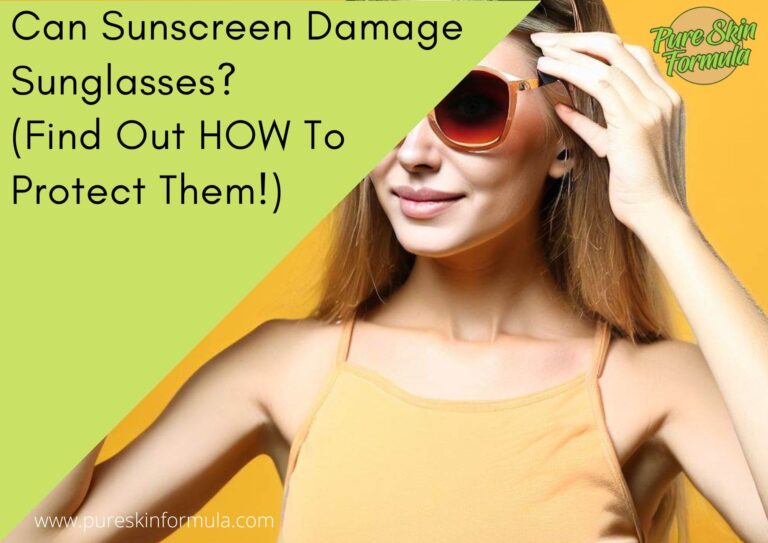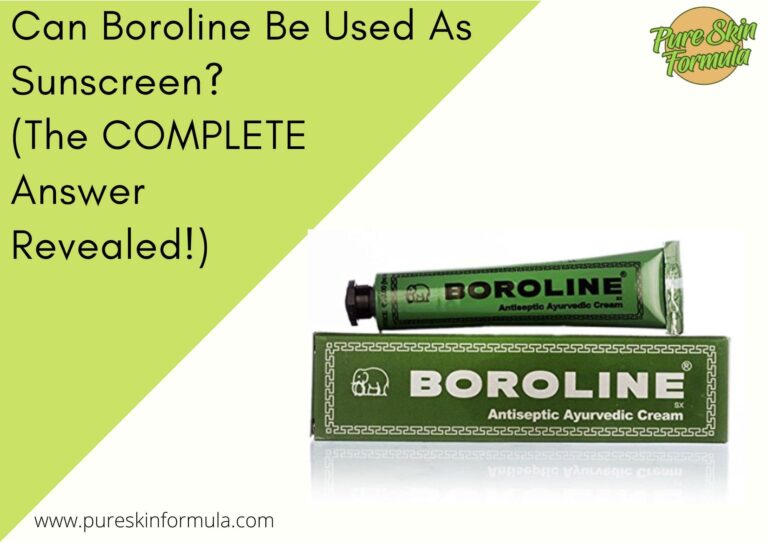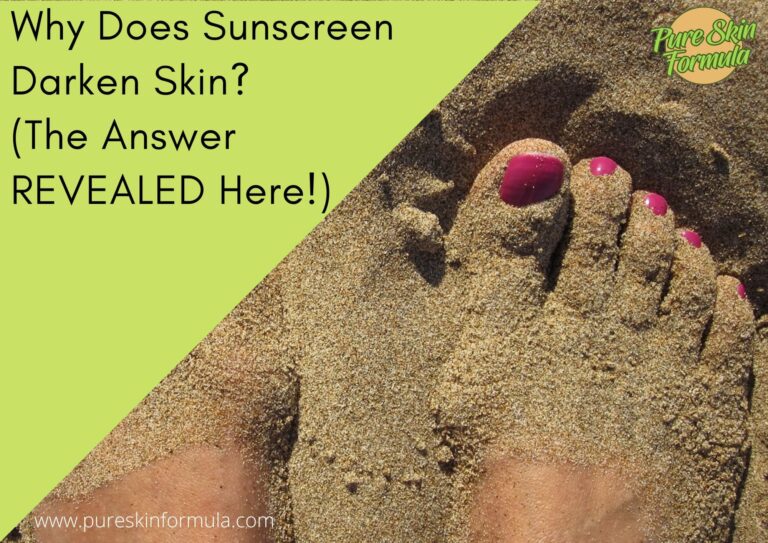As the sun sets and the moon takes place, a question regarding night sunscreen usage lingers in many’s minds. This enigma has sparked debates and left countless skincare enthusiasts pondering its validity.
Today, we embark on a journey to uncover the truth behind this skincare myth and shed light on its potential benefits. From the chemistry of sunscreens to the science behind their efficacy,
I’ll explore the depths of this topic and leave you with a clear understanding of whether or not slathering on sunscreen before hitting the pillow is a wise move. So, grab your favorite skincare potion, and let’s embark on this enlightening quest together.
Can I use sunscreen at night?
You can use sunscreen at night, but it may only be necessary for some people and specific situations. Sunscreen is primarily designed to protect the skin from harmful UV radiation during the daytime when the sun is out.
When indoors and not exposed to direct sunlight, the risk of UV damage is significantly reduced at night.
There are a few exceptions where nighttime sunscreen use can be beneficial. If you work night shifts or have prolonged exposure to indoor light sources, such as fluorescent lights or electronic screens, using a sunscreen with broad-spectrum protection can help minimize the potential damage caused by blue light and environmental pollutants.
If you have specific skin concerns or are following a dermatologist’s recommendation for a nighttime skincare routine that includes sunscreen, it’s essential to follow their guidance.
Let’s elaborate on the topic.
Which type of sunscreen is more appropriate at night?
You’ve probably heard the terms “chemical” and “physical” sunscreen thrown around. But what’s the difference? Chemical sunscreens absorb UV rays and convert them into heat, while physical sunscreens act as a barrier, reflecting the sun’s rays away from the skin.
Chemical sunscreens are often preferred for daytime use because they tend to be more lightweight and blend effortlessly into the skin, making them suitable for daily application under makeup.
On the other hand, physical sunscreens containing ingredients like zinc oxide or titanium dioxide provide immediate protection upon application and are less likely to cause skin irritation. They can be a good option for sensitive skin or specific nighttime needs.
Does SPF matter at night?

The truth is, during nighttime, when the sun is down, the UV radiation exposure is significantly lower than during the daytime. SPF measures the level of protection against UVB rays, which are responsible for sunburn. Since they are minimal at night, the need for high SPF is less crucial.
SPF isn’t the only factor to consider when choosing nighttime sunscreen. The SPF rating is often tied to the overall sun protection level of the product, including UVA rays. Even though a high SPF may not be necessary at night, a broad-spectrum sunscreen can provide the desired protection against UVA rays.
These sunscreens are formulated to shield the skin from UVA and UVB rays. While UVB rays primarily cause sunburn, UVA rays penetrate deeper into the skin, contributing to premature aging, wrinkles, and skin cancer.
What is the place of sunscreen in the nighttime skincare routine?
Establishing a nighttime skincare routine is crucial because it allows your skin to rejuvenate and repair itself while you sleep. During the day, your skin is exposed to various environmental stressors like pollution, UV rays, and makeup, which can clog pores and cause damage.
A proper nighttime skincare routine helps remove impurities, nourish your skin, and prepare it for optimal recovery overnight.
Before applying sunscreen at night, cleaning and moisturizing your skin is essential. Cleansing removes dirt, oil, and any lingering traces of makeup, allowing your skin to breathe and absorb the beneficial ingredients of your skincare products.
Look for a gentle cleanser that suits your skin type—foaming, gel-based, or cream-based.
After cleansing, remember to moisturize! Moisturizers help hydrate and nourish your skin, keeping it soft and supple. Opt for a moisturizer that matches your skin’s needs, such as one with antioxidants, hyaluronic acid, or natural oils.
Selecting a suitable sunscreen for nighttime use involves considering a few factors. I have already mentioned the broad-spectrum protection to shield your skin from UVA and UVB rays.
Heavy or greasy sunscreens may be unnecessary since you won’t be exposed to direct sunlight at night. Instead, choose a lightweight, non-comedogenic formula that won’t clog your pores or feel heavy on your skin.
Some sunscreens are designed for nighttime, offering additional benefits like hydration, anti-aging properties, or soothing ingredients.
So, cleanse, moisturize, and choose the right nighttime sunscreen to pamper your skin while you catch some well-deserved beauty sleep. Your skin will thank you in the morning!
What are the potential benefits of using sunscreen at night?
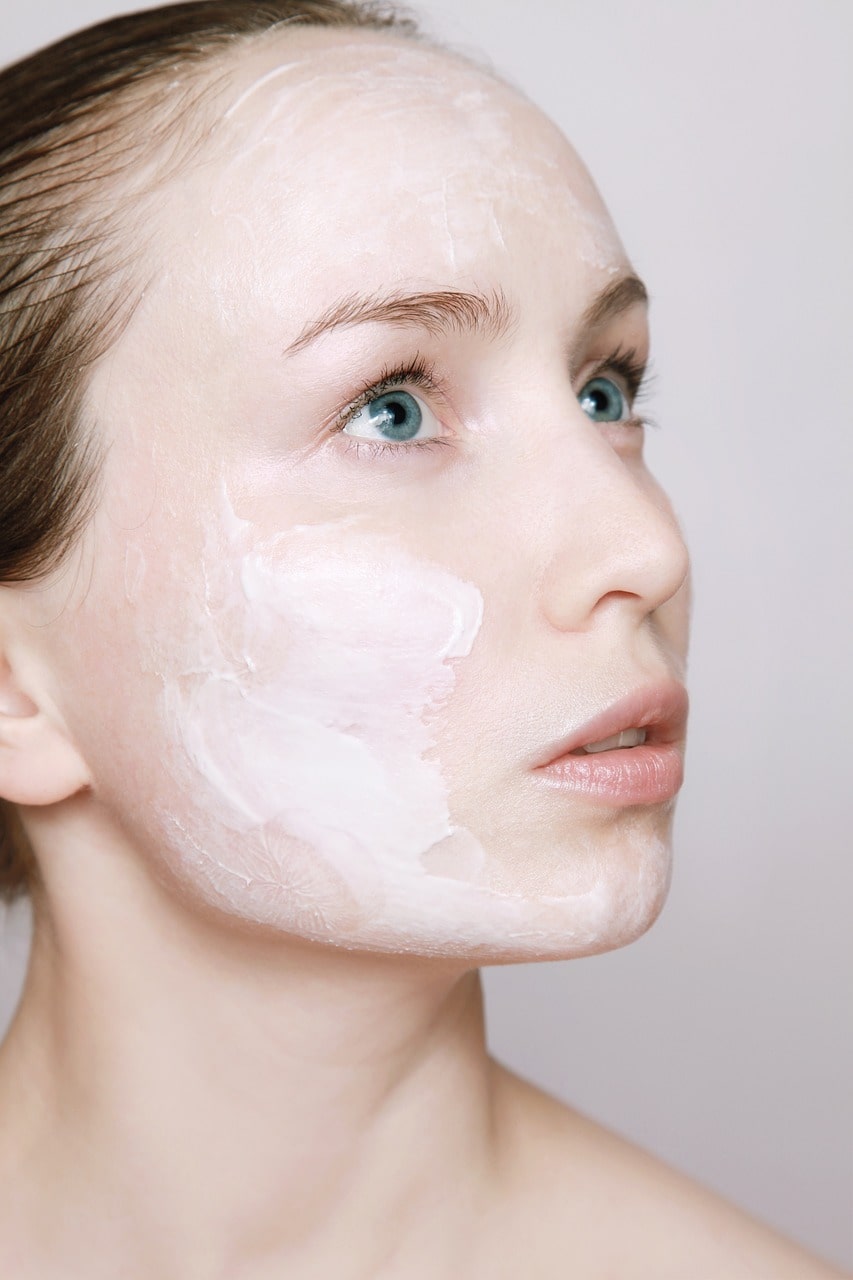
In this digital age, many of us spend significant time in front of electronic devices such as smartphones, tablets, and computers.
These devices emit blue light, and research suggests that excessive exposure to them may disrupt the skin’s natural barrier function and contribute to forming free radicals, which can damage collagen and elastin, leading to wrinkles and sagging skin.
Applying sunscreen at night, particularly with ingredients like zinc oxide or titanium dioxide, can be a physical barrier against blue light, reducing its potential impact on your skin.
In addition to UV radiation and blue light, our skin is constantly exposed to environmental pollutants such as smoke, smog, and airborne particles. These pollutants can accumulate on the skin’s surface, causing oxidative stress, inflammation, and skin damage.
Using sunscreen at night provides a protective barrier that can help prevent these pollutants from adhering to your skin. Look for sunscreens that offer antioxidant properties or additional protective ingredients like vitamin C or niacinamide, which can further assist in combating the damaging effects of environmental pollutants.
Debunking common myths and misconceptions
One common myth surrounding sunscreen is that it prevents vitamin D absorption, a crucial nutrient for maintaining healthy bones and overall well-being. While it’s true that sunscreen can reduce the production of vitamin D in the skin, the impact is minimal.
Most people can still obtain adequate vitamin D through a balanced diet and brief, unprotected sun exposure. Relying solely on sun exposure for vitamin D is not recommended due to the potential risk of skin damage and cancer.
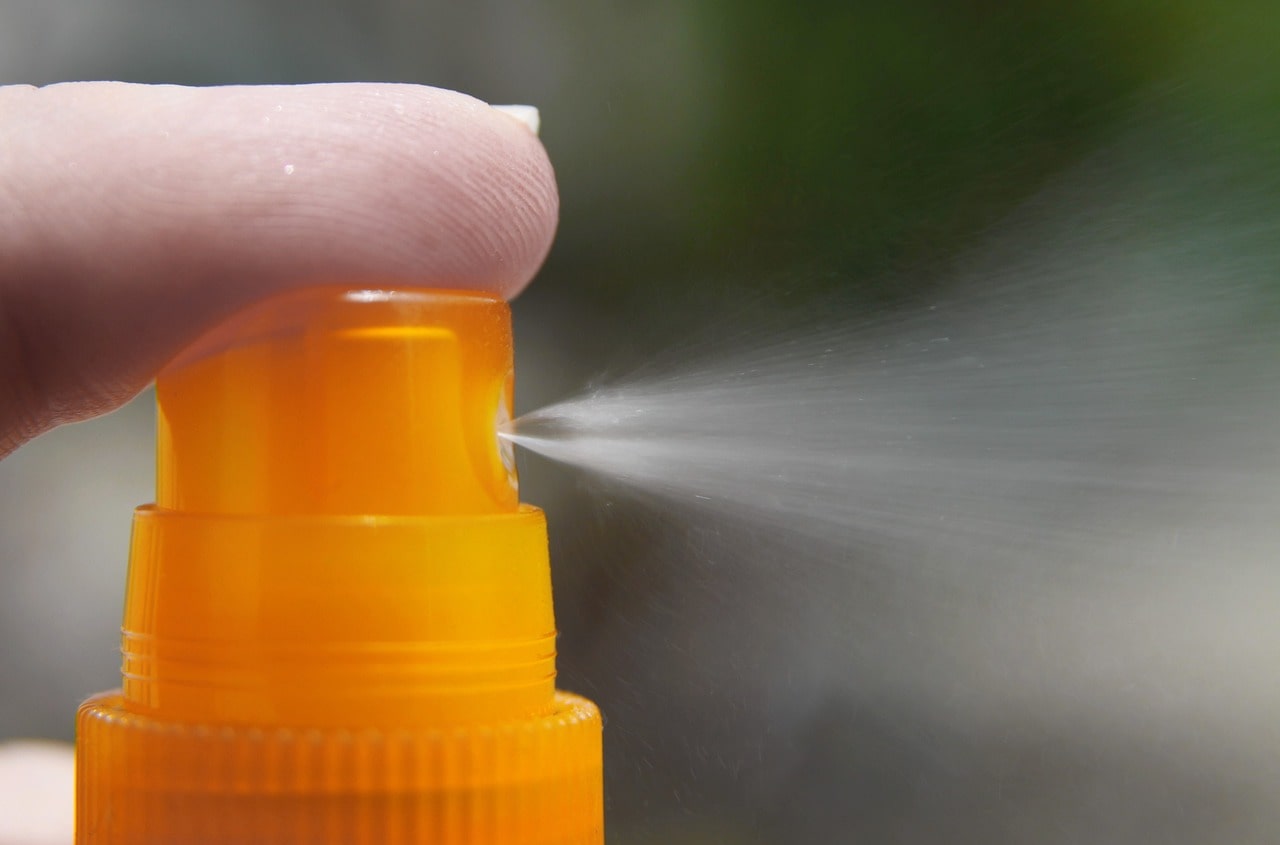
It’s always a good idea to consult a healthcare professional or dermatologist to determine the best approach for maintaining vitamin D levels while protecting your skin with sunscreen.
Be aware of the misconception that a single sunscreen application in the morning provides all-day protection. The effectiveness of sunscreen gradually diminishes over time, especially with factors such as sweating, swimming, or wiping your face.
It’s crucial to reapply sunscreen every two hours or more frequently if engaging in activities that could compromise its efficacy. Additionally, even sunscreens labeled “water-resistant” or “long-lasting” require reapplication after swimming or excessive sweating.
Cloudy or rainy days might seem like the perfect opportunity to skip sunscreen, but that’s another common misconception. Clouds and rain do not entirely block UV rays; they can penetrate the atmosphere, reaching your skin.
Clouds may even intensify UV radiation by reflecting and scattering the rays. Regardless of the weather conditions, wearing sunscreen daily is essential, as up to 80% of UV radiation can penetrate through clouds. So, make it a habit to include sunscreen as a part of your skincare routine, rain or shine.
What do experts say?
Dermatologists, the skincare gurus we turn to for expert advice, have valuable insights on nighttime sunscreen use. Many agree that while sunscreen is primarily designed for daytime protection, there are specific scenarios where nighttime sunscreen use can be beneficial.
Dermatologists emphasize tailoring skincare routines to individual needs and specific circumstances. Doctors may recommend sunscreen for people who work night shifts or have prolonged exposure to indoor light sources.
To wrap it up
One thing becomes clear: protecting your skin knows no boundaries, even under darkness. While sunscreen’s primary role is to shield against the sun’s harmful UV rays during the day, there are circumstances where nighttime applications can offer additional benefits.
Whether safeguarding against indoor light sources, minimizing the impact of blue light exposure, or defending against environmental pollutants, incorporating a suitable nighttime sunscreen into your skincare routine can be a proactive step towards healthier, more resilient skin.
Consult a dermatologist to determine the best approach for your skin’s needs. So, embrace the night, and let the gentle caress of moonlight be accompanied by the invisible shield of nighttime sunscreen, keeping your skin radiant and protected, no matter the hour.
Thank you for reading!
Valeria



